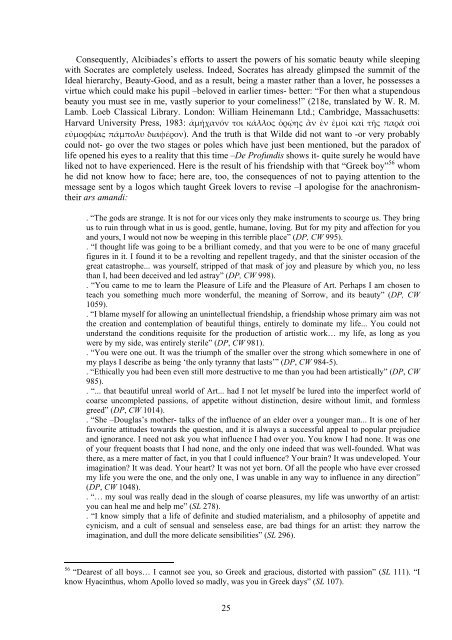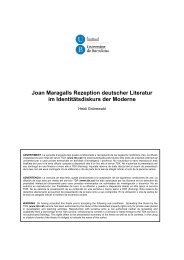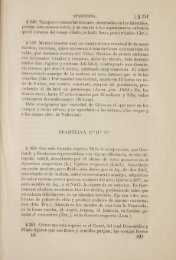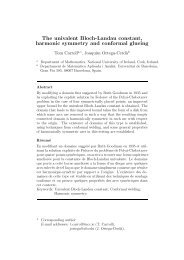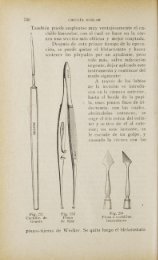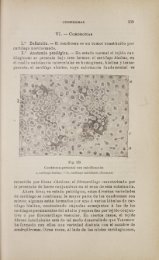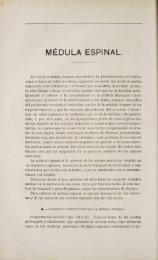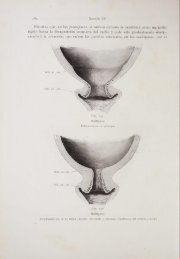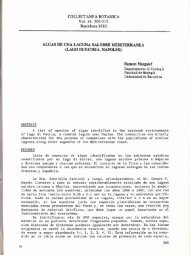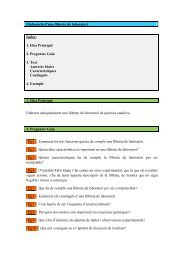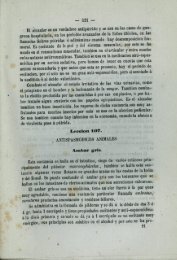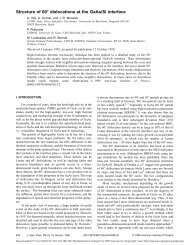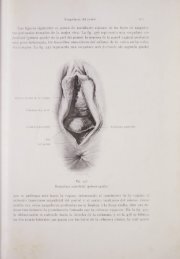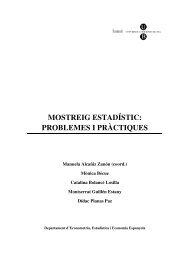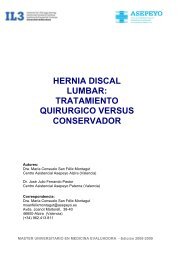Wilde Parsa ang_12080.pdf - Dipòsit Digital de la UB - Universitat ...
Wilde Parsa ang_12080.pdf - Dipòsit Digital de la UB - Universitat ...
Wilde Parsa ang_12080.pdf - Dipòsit Digital de la UB - Universitat ...
You also want an ePaper? Increase the reach of your titles
YUMPU automatically turns print PDFs into web optimized ePapers that Google loves.
Consequently, Alcibia<strong>de</strong>s’s efforts to assert the powers of his somatic beauty while sleeping<br />
with Socrates are completely useless. In<strong>de</strong>ed, Socrates has already glimpsed the summit of the<br />
I<strong>de</strong>al hierarchy, Beauty-Good, and as a result, being a master rather than a lover, he possesses a<br />
virtue which could make his pupil –beloved in earlier times- better: “For then what a stupendous<br />
beauty you must see in me, vastly superior to your comeliness!” (218e, trans<strong>la</strong>ted by W. R. M.<br />
Lamb. Loeb C<strong>la</strong>ssical Library. London: William Heinemann Ltd.; Cambridge, Massachusetts:<br />
Harvard University Press, 1983: ἀμήχανόν τοι κάλλος ὁρῴης ἂν ἐν ἐμοὶ καὶ τῆς παρὰ σοὶ<br />
εὐμορφίας πάμπολυ διαφέρον). And the truth is that <strong>Wil<strong>de</strong></strong> did not want to -or very probably<br />
could not- go over the two stages or poles which have just been mentioned, but the paradox of<br />
life opened his eyes to a reality that this time –De Profundis shows it- quite surely he would have<br />
liked not to have experienced. Here is the result of his friendship with that “Greek boy” 56 whom<br />
he did not know how to face; here are, too, the consequences of not to paying attention to the<br />
message sent by a logos which taught Greek lovers to revise –I apologise for the anachronismtheir<br />
ars amandi:<br />
. “The gods are str<strong>ang</strong>e. It is not for our vices only they make instruments to scourge us. They bring<br />
us to ruin through what in us is good, gentle, humane, loving. But for my pity and affection for you<br />
and yours, I would not now be weeping in this terrible p<strong>la</strong>ce” (DP, CW 995).<br />
. “I thought life was going to be a brilliant comedy, and that you were to be one of many graceful<br />
figures in it. I found it to be a revolting and repellent tragedy, and that the sinister occasion of the<br />
great catastrophe... was yourself, stripped of that mask of joy and pleasure by which you, no less<br />
than I, had been <strong>de</strong>ceived and led astray” (DP, CW 998).<br />
. “You came to me to learn the Pleasure of Life and the Pleasure of Art. Perhaps I am chosen to<br />
teach you something much more won<strong>de</strong>rful, the meaning of Sorrow, and its beauty” (DP, CW<br />
1059).<br />
. “I b<strong>la</strong>me myself for allowing an unintellectual friendship, a friendship whose primary aim was not<br />
the creation and contemp<strong>la</strong>tion of beautiful things, entirely to dominate my life... You could not<br />
un<strong>de</strong>rstand the conditions requisite for the production of artistic work… my life, as long as you<br />
were by my si<strong>de</strong>, was entirely sterile” (DP, CW 981).<br />
. “You were one out. It was the triumph of the smaller over the strong which somewhere in one of<br />
my p<strong>la</strong>ys I <strong>de</strong>scribe as being ‘the only tyranny that <strong>la</strong>sts’” (DP, CW 984-5).<br />
. “Ethically you had been even still more <strong>de</strong>structive to me than you had been artistically” (DP, CW<br />
985).<br />
. “... that beautiful unreal world of Art... had I not let myself be lured into the imperfect world of<br />
coarse uncompleted passions, of appetite without distinction, <strong>de</strong>sire without limit, and formless<br />
greed” (DP, CW 1014).<br />
. “She –Doug<strong>la</strong>s’s mother- talks of the influence of an el<strong>de</strong>r over a younger man... It is one of her<br />
favourite attitu<strong>de</strong>s towards the question, and it is always a successful appeal to popu<strong>la</strong>r prejudice<br />
and ignorance. I need not ask you what influence I had over you. You know I had none. It was one<br />
of your frequent boasts that I had none, and the only one in<strong>de</strong>ed that was well-foun<strong>de</strong>d. What was<br />
there, as a mere matter of fact, in you that I could influence? Your brain? It was un<strong>de</strong>veloped. Your<br />
imagination? It was <strong>de</strong>ad. Your heart? It was not yet born. Of all the people who have ever crossed<br />
my life you were the one, and the only one, I was unable in any way to influence in any direction”<br />
(DP, CW 1048).<br />
. “… my soul was really <strong>de</strong>ad in the slough of coarse pleasures, my life was unworthy of an artist:<br />
you can heal me and help me” (SL 278).<br />
. “I know simply that a life of <strong>de</strong>finite and studied materialism, and a philosophy of appetite and<br />
cynicism, and a cult of sensual and senseless ease, are bad things for an artist: they narrow the<br />
imagination, and dull the more <strong>de</strong>licate sensibilities” (SL 296).<br />
56 “Dearest of all boys… I cannot see you, so Greek and gracious, distorted with passion” (SL 111). “I<br />
know Hyacinthus, whom Apollo loved so madly, was you in Greek days” (SL 107).<br />
25


